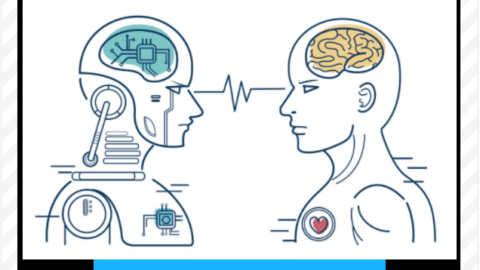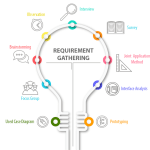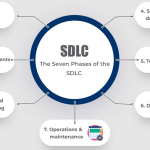The Human Touch: How Technology Advancements are Complementing, Not Replacing, Human Workers
Introduction
With all of the hype on OpenAI’s Chatgpt – the chatbot that headlines claim might eliminate the student essay or serve as a substitute for writers – the controversy over whether robots will replace skilled workers has reignited. Well, that’s not true while some jobs may be eliminated, new jobs may also be created as a result of technological advancements. Additionally, certain types of jobs are less likely to be fully automated, such as those that require creativity, emotional intelligence, and social skills. As a result, the nature of work may change, but humans will still be needed to use certain types of skills.
A report from Burning Glass Institute done in partnership with Business-Higher Education Forum Wiley says that Artificial Intelligence and Machine Learning are the fastest growing and widest spreading skills set across industries in the job market and having them can mean workers are paid higher.
Myth: Automation is a lurking menace
We need to rethink the myth that Automation is a lurking menace on the horizon. It has been observed that people whose work involves leveraging automation (AI and ML) skills get paid significantly higher than those who don’t. In the past few days, it has been seen that skills are shifting rapidly in the job market and those who do not keep up with the skills transformation would be at a disadvantage. The recent layoffs might have less to do with jobs going away than with them demanding completely new skill sets that have not been mastered yet by the workforce.
The 4 fastest growing and widest spreading skills
It has been analyzed that a four-skill cluster has emerged as not only the fastest growing but also the widest spreading skills. Due to their growth rate and high reach, these skills are the ones disrupting the job market while at the same time offering the biggest job opportunities across industries. The four-skill cluster includes-
- AI and ML
- Cloud Computing
- Project Management
- Social Media
Let’s further analyze these skills and their impact.

AI and ML skills
AI, or artificial intelligence: is a field of computer science that comprises to development of intelligent machines that can perform tasks that typically require human intelligence, such as recognizing speech, making decisions, and understanding natural language.
ML or machine learning: is a subfield of AI that prioritizes creating algorithms and models that enable computers to learn from data and make predictions or decisions without being explicitly programmed to do so. ML is used in a wide range of applications, such as image recognition, natural language processing, and recommendation systems.
The technical knowledge and competence necessary to build, implement, and deploy AI and ML systems are referred to as AI and ML skills. The technical knowledge and experience needed to build, implement, and deploy AI and ML systems are referred to as AI and ML talents. These skills often entail fluency in programming languages such as Python and R, comprehension of statistical modeling and data analysis, competence with machine learning libraries and frameworks like TensorFlow and scikit-learn, and proficiency with data pretreatment and feature engineering approaches. Furthermore, expertise in computer vision, natural language processing, and deep learning may be very helpful for specific AI and ML applications.

Cloud Computing skills
Cloud computing refers to the delivery of computing services, including servers, storage, databases, networking, software, and analytics, over the internet (the “cloud”). Instead of investing in and maintaining physical servers and other computing infrastructure, users can access these resources on demand from a cloud provider, paying only for what they use.
Cloud computing skills refer to the abilities and knowledge required to work with and manage cloud computing technologies and services. These skills entail understanding the fundamentals of cloud computing, such as virtualization, distributed computing, and on-demand self-service, as well as familiarity with popular cloud computing platforms.

Project Management
Project management refers to the process of planning, organizing, and supervising a specific project from start to finish, to achieve its predefined goals and objectives. It encompasses the application of various skills, tools, techniques, and resources to manage and control project activities, in order to meet project requirements within the constraints of time, budget, and quality.
Project management skills refer to the abilities and techniques that are required to plan, execute, and complete a project successfully. These skills include a range of abilities, such as planning, communication, time management, risk management, and problem-solving among others. These skills are crucial to ensuring that a project is completed on time, within budget, and to the satisfaction of all stakeholders.

Social Media
In today’s corporate world, social media refers to a range of online platforms and tools that allow you to create, share, and exchange content and information with others. Social media platforms are used by businesses for a variety of purposes, including but not limited to marketing, customer service, and communication with employees. Social media platforms are being used by organizations across the globe to reach out to potential clients, engage with existing customers, and build their brand image. Through social media, businesses can create and share content such as blog posts, videos, and images that highlight their products and services, and respond to customer inquiries and feedback.
Social media skills refer to the abilities and knowledge required to effectively use social media platforms for personal or professional purposes. These skills include a range of abilities, such as content creation, social media management, social media marketing, and analytics among others.
Impact of the four-cluster skills
- AI and ML are having a significant impact on the job market, with the demand for professionals who can develop and implement these technologies increasing across industries.
- Cloud computing has also become a critical skill, as more organizations move their infrastructure to the cloud.
- Project management skills are always in demand, as companies require efficient and effective management of projects to meet business objectives.
- Social media skills are also becoming more valuable, with companies looking for professionals who can use social media to drive business growth and engage with customers.
Overall, possessing these skills can enhance career prospects and increase job opportunities in various industries.
Conclusion
It has been seen proven that 1 in 8 job postings includes requiring 1 of the 4 skills sets explained above. According to a study people who develop the four-cluster skill outperform those who don’t and earn higher compensation by a wide margin. What we are seeing today is actually an imbalance of people with specific sets of skill that the market needs. What puts you in the driver’s seat of your career is focusing on the right skills along with the right job.
Add Comment
You must be logged in to post a comment.








